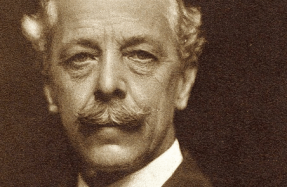AN EAR FOR TROUBLE


In April 1731, offshore from Havana, the Spanish guarda costa vessel Isabella under the command of Captain Juan de León Fandiño stopped the British merchantman Rebecca, ostensibly on suspicion of smuggling. That ship’s irate master, Richard Jenkins, explained that his vessel was returning to Britain after having traded around the Caribbean. Fandiño wasn’t interested in route details; he was after plunder. The Spaniard and crew began to strip Rebecca of its money and cargo. Then, in the words of Rear Admiral Charles Stewart, the British commander of Jamaica Station, in a complaint to the Spanish governor of Havana, “After using the captain [Jenkins] in a most barbarous and inhuman manner…[Fandiño cut] off one of his ears.” Some years would pass before the British public learned of the atrocity, but by 1731 privateering and outright piracy were common in the Caribbean, and British ships were by no means always the victims. Both sides had committed numerous such transgressions, moving Stewart to observe, “Villainy is inherent to this climate.” However, the removal of Jenkins’ ear was to have consequences far beyond the merely anatomical.
The Caribbean was a hotly contested region in the early 18th century. Britain had colonized a number of smaller islands, as well as Jamaica, which they had seized from the Spanish in 1655. The French, Dutch and Danish also had possessions in the region. For its part, Spain had a closed colonial system, whereby only Spanish ships were allowed unrestricted trade with its colonies.
Then came the 1713 Treaty of Utrecht, which ended the War of the, granting it the right to send one 500-ton merchantman loaded with duty-free goods to each of the annual trade fairs—at Cartagena (in present-day Colombia), Porto belo (in present-day Panama) and Veracruz (in present-day Mexico)—and to transport up to 4,800 slaves a year into the Spanish colonies. Five hundred tons of goods a year wasn’t much, but the British never took the number seriously. The London-based directors of the public-private South Sea Co. interpreted the as license to open an extensive smuggling trade in the Caribbean, where British goods were in high demand. The Spanish retaliated by licensing private Spanish merchant ships to act as armed . Low-level naval guerrilla warfare ensued. Jenkins lost an ear. Men on either side lost their lives.
You’re reading a preview, subscribe to read more.
Start your free 30 days



